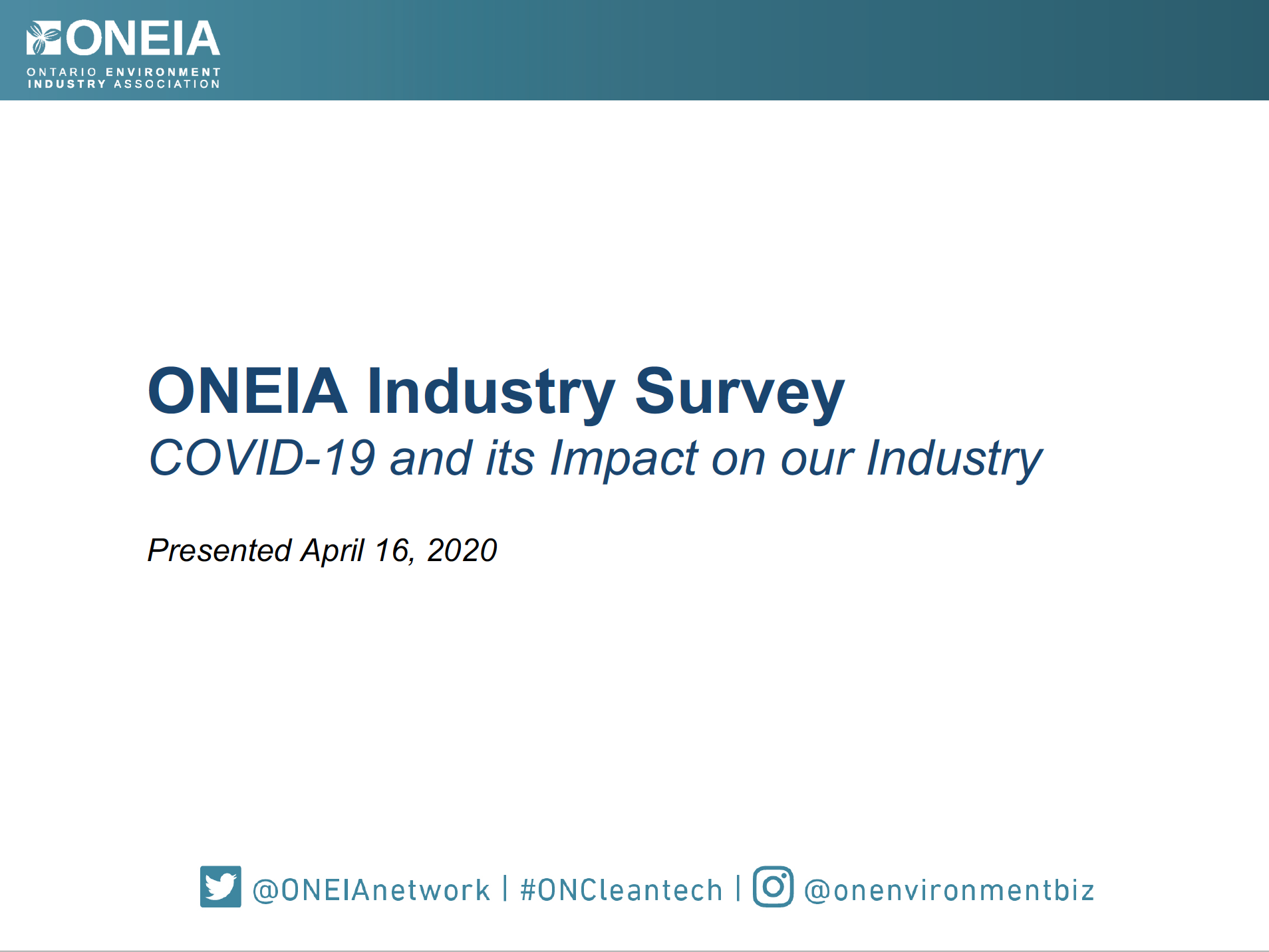Water technology companies have been impacted by the COVID-19 pandemic, which doesn’t come as a surprise. But how exactly have they been impacted?
To find out the answer, the Ontario Environment Industry Association (ONEIA) surveyed companies in the water sector. It also surveyed companies in the environmental sector more broadly. Forty-three companies, of which 17 per cent were water technology companies, responded to the survey.
Alex Gill, the executive director of ONEIA, presented the general results of the survey during a webinar on April 16, 2020. The survey found that:
- Fifty-nine per cent of companies have experienced a slight decrease or significant decrease in revenues.
- Forty-six per cent of companies expect their staff to decrease in the next six to nine months while 44 per cent expect no change.
- About 50 per cent of respondents noted that it would be very helpful or somewhat helpful to have income tax, sales tax, and WSIB payments deferred.
- Forty-two per cent of companies have cancelled important meetings and/or events.
- Thirty-four per cent of companies found that clients have cancelled contracts or slowed their decision-making on new contracts.
Following Gill’s update, each of ONEIA’s committee chairs presented updates on behalf of their sub-sectors. Irene Hassas, vice president of corporate development and partnerships at Aslan Technologies, presented an update on behalf of ONEIA’s water committee.
“Similar to any other economic downturn, the current crisis will present new opportunities to our economy in general and cleantech sector specifically,” noted Irene Hassas, co-chair of ONEIA’s water committee. “Although it will not be easy, companies products, services, and skillsets will need to adapt quickly to the immediate needs of our economy.”

Hassas presented some of the concerns brought forward by water technology companies. These included:
- Uncertainty about how supply chains might be impacted in the coming months has led to questions about how production might be impacted.
- The pandemic has had an impact on the project and sales pipeline. Depending on the type of business, some companies have lost business opportunities. This is in part because industry events have been cancelled and as a result, there have been fewer networking opportunities.
- The impact of the virus on drinking water and wastewater has not been fully understood. On a positive note, research is being done to better understand what the impacts might be and how utility staff can be better protected.
Hassas also presented some potential opportunities that might arise for water technology companies in the coming months.
- Universal access to water has gained more recognition. This is because governments in some developing countries appeared to be spending more to provide water for handwashing. As a result, “there will be more opportunities for Ontario technologies to export,” noted Hassas.
- The benefits of digitization became more obvious. Utilities that had digital solutions in place before the COVID-19 outbreak “responded to the lockdown by sending their staff home and relying on their automation systems,” noted Hassas. Utilities that didn’t have digital solutions in place struggled “with the trade-off between safety and service continuity.”
- There will be an opportunity to present the business case for more water data and analysis since they can support better planning and risk management.









